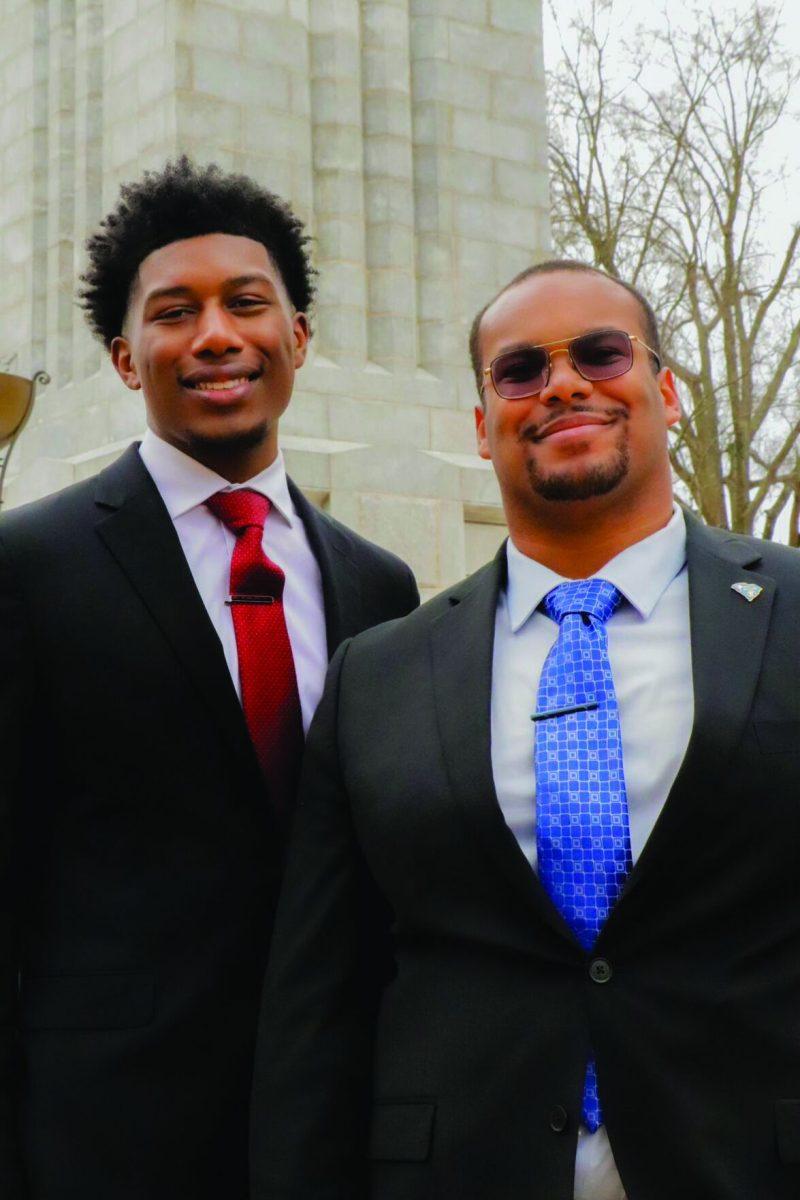Resolution 48, the NC State University Student Directory Privacy and Safety Act, recommends the restriction of access to student directory information to those with University credentials. Student Senate passed the resolution at its Nov. 8 meeting.
Technician objected to the legislation at the Oct. 25 Student Senate meeting prior to the resolution’s first reading. The resolution was then sent to the Student Affairs committee, where it received favorable review.
On the morning of Nov. 8, Technician published an editorial speaking against the resolution.
Maria Echeverry Montano, a fourth-year studying political science and chair of the Board of Elections, read a statement in response to the editorial and in support of R 48.
“While the editors-in-chief of the Technician may find R 48 to be what they call an ‘ignorant, futile attempt to restrict information that serves the public interest,’ I can assure you that this is not the case nor the intention,” Echeverry Montano said. “Not only does this piece of legislation prioritize student interest over public interest, student privacy should be public interest.”
Although unsigned editorials are the ultimate responsibility of the editors-in-chief, they are written with the consensus of the entire editorial board.
Echeverry Montano said the piece of legislation is a resolution, meaning no action will be immediately taken should the resolution pass.
“This legislation would express a sentiment or general opinion of Student Government on the issue to campus administrators,” Echeverry Montano said. “Ultimately, campus admin has the final word.”
The Family Educational Rights and Privacy Act protects the privacy of personally identifiable information in a student’s education record. While directory information is not protected under FERPA, students and families must have the option to opt out of including directory information, which the University notifies students of every year.
“Technician closes by telling students how we can manually opt out of the information being in the directory,” Echeverry Montano said. “To this I want to pose another question — why should the burden fall on students to protect their own privacy as opposed to blanket protection provided by the University?”
Taquan Dewberry, a first-year studying computer science and philosophy and the corresponding sponsor of R 48, read the resolution for the second and final time.
Dewberry said senators should consider all sides of the argument while voting.
“Given the adamancy of Technician to express severe disagreement with this piece of legislation, I want to encourage everyone to take all sides of this argument into consideration,” Dewberry said. “Because the Technician and I do agree on one thing, and that is the basic principle that all student senators should remain informed and active about all pieces of legislation upon which we vote.”
During the debate period, Jon Carter, a first-year studying accounting, asked about the efficacy of the resolution in light of directory information being defined by the Department of Education as “education records of a student that would not generally be considered harmful or an invasion of privacy if disclosed.”
“I think that if we are going to require a Shibboleth login layer, you know, everyone is going to be able to put in a public records request,” Carter said. “That request, I believe, has to be guaranteed to anyone who requests it. They don’t have to give a reason, so I think that we’re almost just kind of adding an extra layer that doesn’t necessarily need to be there.”
In response to concerns of the resolution’s efficacy, Dewberry said because this recommendation, if passed and implemented by the University, would require those not affiliated with the University to file a public records request in order to obtain student directory information, the name of the requester and the time at which they requested information would be logged.
Delaney Urchuck, a first-year studying political science, asked if public records requests could be denied.
In response, Margaret Baker, a doctoral candidate in communication, rhetoric and digital media and president of the Graduate Student Association, said getting public records is “not an easy process.”
“It’s very guarded in the sense that we are a public institution that is regulated by the state legislature, and so public records requests are then made accessible because we are a public institution, but we want to know who’s asking about that information,” Baker said.
Because R 48 would render email addresses no longer publicly accessible through the directory, Andy Fetch, a fourth-year studying nuclear engineering, said the resolution would address issues of phishing.
“Everyone’s gotten a very sketchy email, probably about either a scholarship or an internship, that seems a bit too good to be true,” Fetch said. “By adding this kind of extra layer, it blocks a lot of these bad actors from accessing this information.”
R 48 passed with 52 positive votes, zero negative votes and zero abstentions.
SR 45 and SR 46 sought the expulsion of two senators, but Student Senate President Stephen McGuinness ruled them out of order because both former senators resigned prior to the second reading of the legislation.
Legislation passed
SR 41: The 103rd Session Decorum Act – Passed
This resolution establishes behavioral guidelines for the 103rd session. The legislation passed with 52 positive votes, zero negative votes and zero abstentions.













